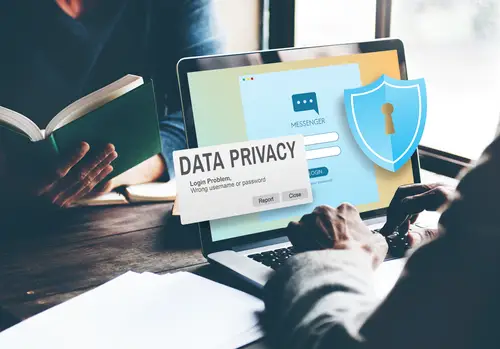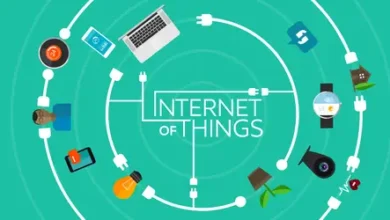Privacy in the Digital Age: How to Protect Your Privacy Online

In today’s interconnected world, where nearly every aspect of our lives is mediated by digital technology, concerns about privacy have become more pressing than ever before. From social media and online shopping to smart devices and digital communication, we leave behind a trail of personal data with every click, tap, and swipe. As a result, safeguarding our privacy online has become a paramount concern for individuals, businesses, and policymakers alike. In this article, we’ll explore the importance of privacy in the digital age and provide practical tips on how to protect your privacy online.
Understanding Privacy in the Digital Age
Privacy, in the context of the digital age, refers to the ability of individuals to control the collection, use, and dissemination of their personal information in the online world. This includes data such as names, addresses, phone numbers, email addresses, financial information, browsing history, and social media activity. With the proliferation of digital technologies and the rise of data-driven business models, the scope and complexity of privacy issues have expanded significantly.
One of the key challenges in safeguarding privacy online is the widespread collection and aggregation of personal data by companies and organizations for various purposes. This includes targeted advertising, product personalization, and data analytics. This data can provide valuable insights and benefits. But, it can also raise concerns about surveillance, profiling, identity theft, and unauthorized access.
Furthermore, the rapid advancement of technologies such as artificial intelligence, machine learning, and big data analytics has enabled the processing and analysis of massive amounts of personal data with unprecedented speed and accuracy. This is raising questions about the ethical implications of data-driven decision-making and algorithmic bias.
The Importance of Protecting Your Privacy Online
Protecting your privacy online is not just a matter of personal preference it’s a fundamental right. It underpins democracy, individual autonomy, and human dignity. Privacy enables individuals to maintain control over their personal information. They can make informed choices about how it is used and shared. Moreover, they can safeguard their identities, reputations, and freedoms from unwarranted intrusion and exploitation.
Furthermore, privacy is essential for fostering trust and confidence in digital technologies and online services. When individuals feel confident that their privacy rights are respected and protected, they are more likely to engage in online activities, share information, and participate in digital communities, driving innovation, economic growth, and social progress. From a business perspective, respecting user privacy is not only a legal and ethical obligation but also a strategic imperative. Companies that prioritize privacy and data protection not only comply with regulatory requirements and mitigate legal risks. They also build trust and loyalty among their customers, enhance their brand reputation, and differentiate themselves in the marketplace.
Practical Tips to Protect Privacy Online
- Use Strong, Unique Passwords:Choose complex passwords that are difficult to guess and use different passwords for each online account. Consider using a password manager to securely store and manage your passwords.
- Enable Two-Factor Authentication (2FA): Add an extra layer of security to your accounts by enabling two-factor authentication. This requires you to provide two forms of identification (e.g. password and a one-time code sent to your phone) to access your account.
- Review Privacy Settings: Regularly review and adjust the privacy settings on your social accounts, web browsers, and other online services. This helps control who can see your personal information and activity.
- Limit Sharing of Personal Information: Be cautious about sharing sensitive personal information online. For instance, your full name, address, phone number, and financial details. Only provide this information on secure websites and when absolutely necessary.
- Use Secure Connections: When accessing the internet, use secure, encrypted connections (e.g., HTTPS) to protect your data from interception by hackers or eavesdroppers. Most importantly, when using public Wi-Fi networks.
- Be Aware of Phishing Attacks: Watch out for phishing emails, texts, or messages that attempt to trick you to reveal personal information or click malicious links. Be skeptical of unsolicited requests for personal or financial information and verify the sender’s identity before responding.
- Update Software Regularly: Keep your operating system, web browsers, and software applications up to date with the latest security patches and updates to protect against vulnerabilities and exploits.
- Use Privacy-Enhancing Tools: Consider using privacy-enhancing tools and technologies. For instance, virtual private networks (VPNs), ad blockers, anti-tracking browser extensions, and anonymous browsing modes. These help to protect your online privacy and anonymity.
- Read Privacy Policies: Take the time to read and understand the privacy policies of websites and online services before providing any personal information. Look for clear explanations of data collection, use, and sharing practices, as well as options for controlling your privacy preferences.
- Educate Yourself: Stay informed about emerging privacy threats, trends, and best practices by reading reputable sources. Furthermore, attend privacy workshops or webinars, and participate in online forums or communities dedicated to privacy advocacy and education.
Privacy in the Workplace: Balancing Security and Employee Rights
Most of the discussion around online privacy focuses on individual users and consumers. Privacy concerns also extend to the workplace, where employers have access to vast amounts of employee data and communications. Balancing the need for security and compliance with the rights and expectations of employees presents unique challenges for organizations in the digital age.
Employers have a legitimate interest in protecting sensitive company information. Thereby ensuring network security, and monitoring employee productivity and compliance with company policies. As a result, many organizations implement monitoring and surveillance measures. For instance email monitoring, internet usage tracking, keystroke logging, and video surveillance. This helps monitor employee behavior and prevent security breaches and misconduct.
Conclusion
In an age where digital technologies permeate every aspect of our lives, to protect privacy online has never been more important. By understanding the risks and challenges associated with digital privacy and adopting proactive measures to safeguard our personal information and digital identities, we can navigate the digital landscape with confidence and control.
Whether it’s using strong passwords, enabling two-factor authentication, reviewing privacy settings, or staying informed about emerging threats, each of us has a role to play in protecting your privacy online. By prioritizing privacy and advocating for responsible data practices, we can help build a safer, more secure, and more trustworthy digital environment for ourselves and future generations.





